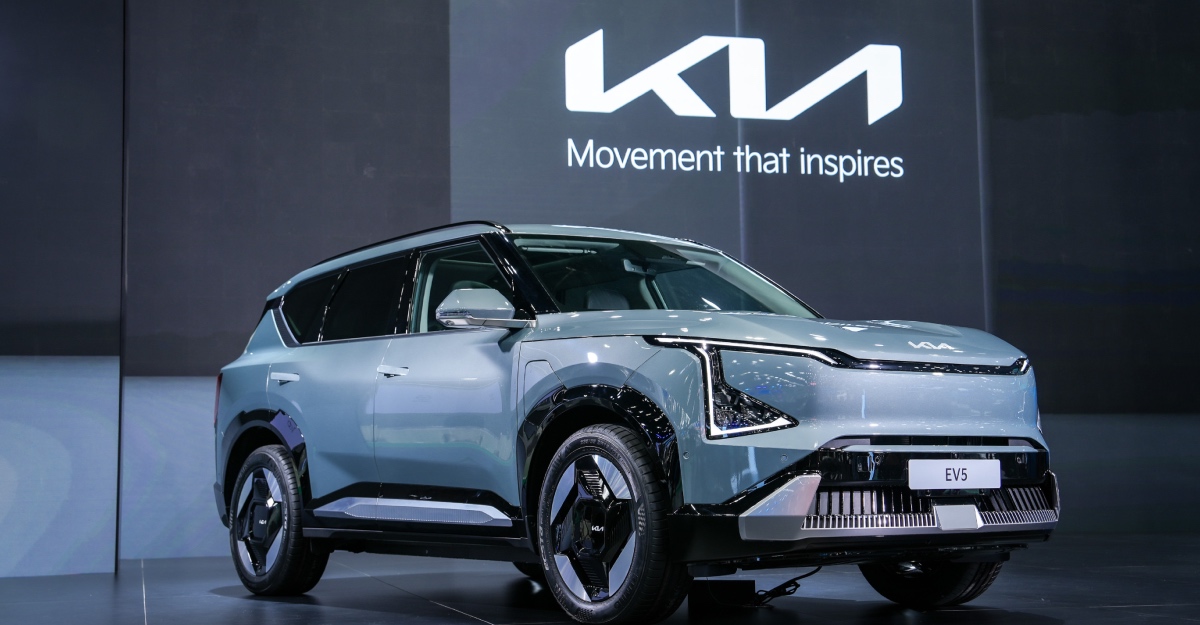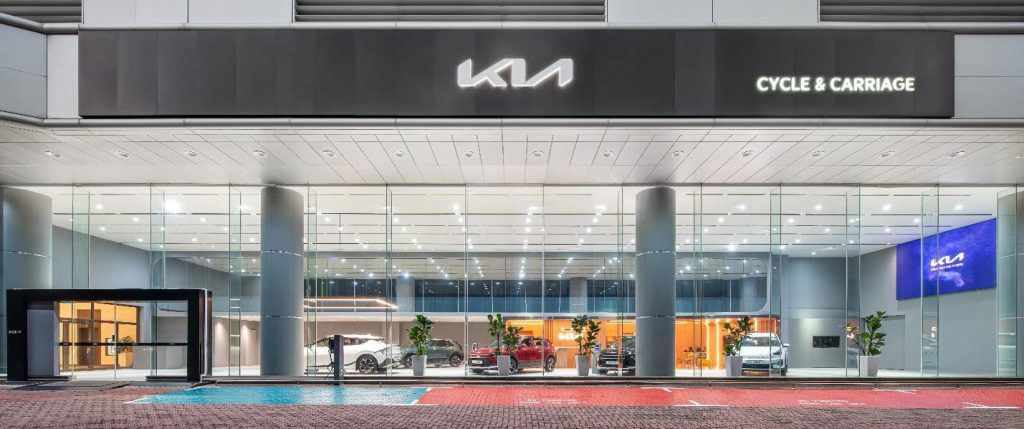Driving change: Kia sets the pace for sustainable mobility with its EV lineup
The award-winning EV9 and the debut of the EV5 in APAC paces up Kia’s strategy to double down on its electrification goals.

If there is one industry that has been buzzing with activity all year round in Southeast Asia, it’s the electric vehicle (EV) industry.
The region is fervently embracing the shift towards sustainable transportation, witnessing a notable surge in EV adoption across its nations.
In fact, according to a Bloomberg study late last year, Thailand has reached the EV adoption tipping point, signalling the start of mass adoption. The country has seen rapid rates of EV adoption, with a median sales growth of 55 per cent in the second quarter of 2023, compared with a year earlier.
Closer to home, with the government aiming to achieve net zero emissions by 2050, Singapore saw a 50.3 per cent year-on-year increase in EV registrations in 2023, compared to the previous year.
Kia is driving electrification across the region
 The Kia showroom in Singapore/ Image Credit: Cycle & Carriage
The Kia showroom in Singapore/ Image Credit: Cycle & CarriageAs EV adoption continues to rise, competition within the Southeast Asian EV industry is intensifying.
One player that is leading in the space is South Korean automobile giant Kia. With a legacy dating back to 1944, Kia has consistently been at the forefront of global automotive advancements, particularly in the realm of sustainability.
Prior to producing cars, Kia made its initial foray into eco-friendly transportation in 1952, with the launch of a no-emissions bicycle. Fast forward to 2008, the company made waves at the Paris Motor Show by unveiling two hybrid car models equipped with a 15 kW electric motor.
Building upon this momentum, Kia propelled itself into the EV market in 2014 with the launch of the Soul EV. Its subsequent releases, including the Niro EV which made global debut in 2018, and the cutting-edge EV6, have further solidified its position as a frontrunner in sustainable automotive solutions.
To expand the brand’s reach across Southeast Asia, Kia established a sales subsidiary in Thailand in January this year. The Kia Sales facility made its debut at the 2024 Bangkok International Motorshow, where the company showcased the ASEAN premiere of the Kia EV5, the automotive giant’s first-ever, all-electric compact SUV.
The EV5 will be a game-changer in Southeast Asia
Although the EV5 has yet to debut in Singapore, it is set to revolutionise the market with its remarkable features.
At the heart of the EV5 lies Kia’s Electric-Global Modular Platform (E-GMP), which not only enhances the vehicle’s handling and maneuverability with its low centre of gravity, but also incorporates Kia’s cutting edge Fast Charging technology. This innovation enables the EV5 to charge from a minimum state to 80 per cent in just 38 minutes (when using 141 kW DC chargers).
Coupled with the EV’s range of up to 665 kilometres per charge (based on NEDC standards) for its 88.1 kWh battery pack, the Kia EV5 ensures seamless journeys with minimal downtime.
Apart from its exceptional mileage, the EV5 redefines comfort with its smart and practical interior solutions, such as its full-flat folding second-row seat with multi-table luggage board, which doubles as a table. The centre console of the electric vehicle also comes equipped with a cooler and warming function, keeping beverages chilled or food warm for long road trips.
With the EV5, you also won’t need to worry about having to step foot in a dealership to stay up-to-date with the latest enhancements—the vehicle’s Connected Car Navigation Cockpit supports Kia’s Over-The-Air services, granting you 24/7 access to the Kia Connect Store. Here, you can effortlessly update and enjoy continuous upgrades to digital features and services.
When it comes to safety, the EV5’s Remote Smart Parking Assist 2 not only recognises parking lines, but also autonomously executes a wide variety of parking manoeuvres. Meanwhile, the Advanced Driver Assistance Systems provides a suite of active safety features, including those that aid in maintaining distance and staying centred in lanes.
Doubling down on sustainability with the EV9
Green vehicles like the EV5 represent a significant step towards promoting sustainability, but Kia is taking this commitment even further.
Earlier in January, Kia launched its first ever three-row seat electric flagship SUV in Singapore, the Kia EV9, marking a pioneering milestone for the company as the first automobile model to embrace the brand’s Design Sustainability Strategy.
The strategy was introduced to gradually eliminate the use of leather, implement sustainable elements across Kia models, and to continuously increase the company’s use of bio-based materials like corn, sugar cane, and natural oils. Kia’s target is to increase the proportion of recycled plastic it uses to 20 per cent by 2030.
The automotive giant’s dedication to sustainability has not gone unnoticed, with the EV9 securing two prestigious titles at the 2024 World Car Awards: the World Car of the Year and World Electric Vehicle titles.
“Movement that Inspires”
Kia’s vision extends far beyond mere transportation. In 2020, it unveiled its Plan S strategy to double down on its electrification goals.
This was followed by a brand relaunch in 2021, which introduced Kia’s new tagline, “Movement that Inspires,” encapsulating its ambition to touch lives beyond traditional vehicle manufacturing.
The debut of the EV5 and EV9 underscores Kia’s commitment to this ambitious strategy. By firmly establishing itself as a leader in the Southeast Asian EV revolution, Kia is charting a steadfast course towards a future driven by innovation and sustainability.
Looking forward, Kia plans to continue its growth momentum by building a full lineup of EVs in key markets. By 2026, it aims to launch six EV models while also expanding its hybrid electric vehicle line-up from six models in 2024 to nine models by 2028.
To differentiate itself from competitors in emerging markets like Southeast Asia, it will also ramp up the quality of its customer experience and respond to increasing demand by diversifying its manufacturing bases.
Ultimately, Kia aims to achieve an EV sales target of 1.15 million units in 2027 and 1.6 million units in 2030 to drive a greener future. Check out Kia’s range of electric vehicles here.
This article was written in collaboration with Kia.
Featured Image Credit: Kia

 KickT
KickT 






























.jpg&h=630&w=1200&q=100&v=154b70b92d&c=1)

